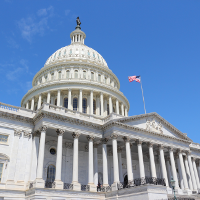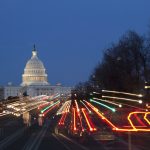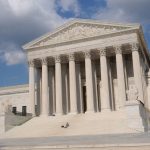 The House Judiciary Committee today overwhelmingly approved the bipartisan Register of Copyrights Selection and Accountability Act by a vote of 27-1. Introduced last Thursday by Chairman Bob Goodlatte and Ranking Member John Conyers, Jr.—with the support of Senate Judiciary Committee Chairman Chuck Grassley, Ranking Member Dianne Feinstein, and Senator Patrick Leahy—the Act is the first legislative effort to follow a four-year review of U.S. Read more
The House Judiciary Committee today overwhelmingly approved the bipartisan Register of Copyrights Selection and Accountability Act by a vote of 27-1. Introduced last Thursday by Chairman Bob Goodlatte and Ranking Member John Conyers, Jr.—with the support of Senate Judiciary Committee Chairman Chuck Grassley, Ranking Member Dianne Feinstein, and Senator Patrick Leahy—the Act is the first legislative effort to follow a four-year review of U.S. Read more
Tag: intellectual property
Kodi Software Enabling Widespread Copyright Infringement
 Awards season always seems to arrive with new stories about how piracy is affecting the film industry and the way we watch movies. Whether it’s a promotional screener that was stolen and uploaded to a torrent site, or the latest software that allows users to download or stream pirated content, the tales are reminders of the enduring problem of online copyright infringement. Read more
Awards season always seems to arrive with new stories about how piracy is affecting the film industry and the way we watch movies. Whether it’s a promotional screener that was stolen and uploaded to a torrent site, or the latest software that allows users to download or stream pirated content, the tales are reminders of the enduring problem of online copyright infringement. Read more
Trusted Notifier Program Defended Against Misleading Rhetoric
 One year ago, domain name registry Donuts, Inc. and the Motion Picture Association of America (MPAA) entered into an agreement termed the Trusted Notifier Program in a joint effort to combat piracy. The voluntary initiative “introduced a new way to work towards mitigation of clear and pervasive cases of copyright infringement,” and according to Donuts’ one-year summary, has been a success for “rights owners, registrants and the public at large.” Read more
One year ago, domain name registry Donuts, Inc. and the Motion Picture Association of America (MPAA) entered into an agreement termed the Trusted Notifier Program in a joint effort to combat piracy. The voluntary initiative “introduced a new way to work towards mitigation of clear and pervasive cases of copyright infringement,” and according to Donuts’ one-year summary, has been a success for “rights owners, registrants and the public at large.” Read more
CPIP’s Sandra Aistars & Scalia Law Alumnae Urge Federal Circuit to Protect Creators and Rein In Fair Use in Oracle v. Google
 On February 17, 2017, CPIP Senior Scholar Sandra Aistars filed an amicus brief in Oracle v. Google, a copyright case currently before the Federal Circuit. Prof. Aistars worked in conjunction with Scalia Law alumnae Antigone Peyton and Jennifer Aktins of Cloudigy Law and third-year law student Rebecca Cusey to file the brief on behalf of 13 intellectual property scholars, including CPIP’s Matthew Barblan, Devlin Hartline, Sean O’Connor, Eric Priest, and Mark Schultz. Read more
On February 17, 2017, CPIP Senior Scholar Sandra Aistars filed an amicus brief in Oracle v. Google, a copyright case currently before the Federal Circuit. Prof. Aistars worked in conjunction with Scalia Law alumnae Antigone Peyton and Jennifer Aktins of Cloudigy Law and third-year law student Rebecca Cusey to file the brief on behalf of 13 intellectual property scholars, including CPIP’s Matthew Barblan, Devlin Hartline, Sean O’Connor, Eric Priest, and Mark Schultz. Read more
What Would Judge Gorsuch Mean for Fair Use?
 On February 1st, President Trump nominated Neil Gorsuch to fill the Supreme Court seat left vacant by the passing of Justice Antonin Scalia. The announcement opened the floodgates of prognostication as to how the appellate court judge from Colorado might sway the Court in the coming terms, with forecasters pouring over his past decisions in an attempt to get into the head of the potentially game-changing jurist. Read more
On February 1st, President Trump nominated Neil Gorsuch to fill the Supreme Court seat left vacant by the passing of Justice Antonin Scalia. The announcement opened the floodgates of prognostication as to how the appellate court judge from Colorado might sway the Court in the coming terms, with forecasters pouring over his past decisions in an attempt to get into the head of the potentially game-changing jurist. Read more
Intellectual Property Backgrounds of President Trump’s Potential Supreme Court Nominees
 By Andrew Baluch[1] & Devlin Hartline
By Andrew Baluch[1] & Devlin Hartline
President Donald Trump will soon announce his nominee to fill the vacancy left at the Supreme Court by late Associate Justice Antonin Scalia. On September 23, 2016, the Trump campaign revealed that there are twenty-one candidates under consideration for the nomination. Read more
Creative Upstarts and Startups: How IP Creates Opportunities and Opens Doors
 This is the first in a series of posts summarizing CPIP’s 2016 Fall Conference, “Intellectual Property & Global Prosperity.“ The conference was held at Antonin Scalia Law School, George Mason University on October 6-7, 2016. Videos of the conference panels and keynote address, as well as other materials, are available on the conference website. Read more
This is the first in a series of posts summarizing CPIP’s 2016 Fall Conference, “Intellectual Property & Global Prosperity.“ The conference was held at Antonin Scalia Law School, George Mason University on October 6-7, 2016. Videos of the conference panels and keynote address, as well as other materials, are available on the conference website. Read more
Rejection of DOJ Consent Decree Interpretation is a Win for Songwriters
Cross-posted from the Mister Copyright blog.
 Earlier this month, a federal judge in the Southern District of New York issued an order rejecting the Department of Justice’s (DOJ) interpretation of a consent decree governing the way the performance rights organization Broadcast Music Inc. Read more
Earlier this month, a federal judge in the Southern District of New York issued an order rejecting the Department of Justice’s (DOJ) interpretation of a consent decree governing the way the performance rights organization Broadcast Music Inc. Read more
European Union Draws a Line on Infringing Hyperlinks
Cross-posted from the Mister Copyright blog.
 Last week, the European Court of Justice—the judicial authority of the European Union—issued an anticipated decision in the Sanoma hyperlinking case, declaring that commercial linking with knowledge of unauthorized content constitutes copyright infringement. The opinion comes after years of similar cases in Europe stirred debate over whether linking to pirated works was a ‘communication to the public’ and therefore infringing, and provides a sensible test that protects the works of authors and creators while ensuring the internet remains a bastion of free speech. Read more
Last week, the European Court of Justice—the judicial authority of the European Union—issued an anticipated decision in the Sanoma hyperlinking case, declaring that commercial linking with knowledge of unauthorized content constitutes copyright infringement. The opinion comes after years of similar cases in Europe stirred debate over whether linking to pirated works was a ‘communication to the public’ and therefore infringing, and provides a sensible test that protects the works of authors and creators while ensuring the internet remains a bastion of free speech. Read more
Despite What You Hear, Notice and Takedown is Failing Creators and Copyright Owners
 In a recent op-ed in the LA Times, Professors Chris Sprigman and Mark Lemley praise the notice and takedown provisions of the Digital Millennium Copyright Act (DMCA) as “a bit of copyright law worth saving.” They argue that Section 512 of the DMCA continues to serve its purpose of balancing the rights of copyright owners and creators with those of Internet service providers (ISPs), while leaving both sides only “slightly disappointed.” Read more
In a recent op-ed in the LA Times, Professors Chris Sprigman and Mark Lemley praise the notice and takedown provisions of the Digital Millennium Copyright Act (DMCA) as “a bit of copyright law worth saving.” They argue that Section 512 of the DMCA continues to serve its purpose of balancing the rights of copyright owners and creators with those of Internet service providers (ISPs), while leaving both sides only “slightly disappointed.” Read more

